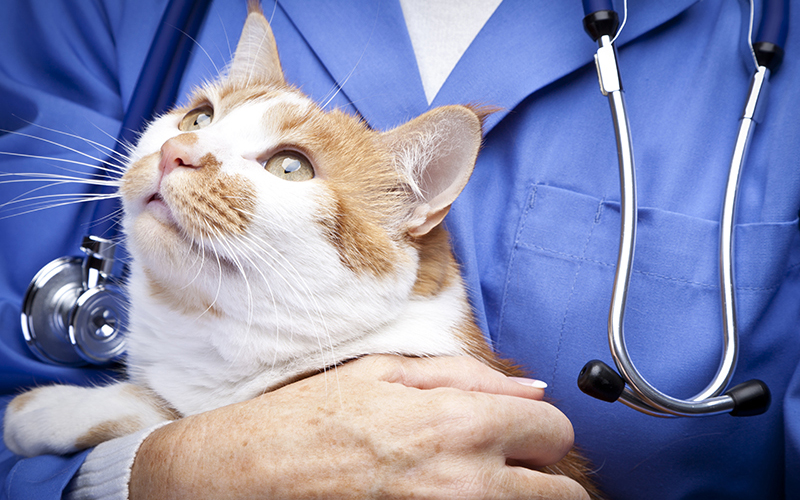Common cat health myths often mislead cat owners. As a result, many cats don’t get the care they need to live long, healthy lives. Setting the record straight for pet parents in your practice emails, social posts, or blogs helps more cat owners ensure they’re providing their feline family members with optimal care and helps increase appointments for your practice.
Here are four dangerous cat health myths that pet parents often believe:
Myth #1 – Indoor Cats Don’t Get Sick
Too often, pet parents assume that if their cat doesn’t go outside, it won’t suffer illness or injury. Yet this, of course, simply isn’t true.
Indoor cats, for example, are not immune from the risk of becoming infected with heartworm disease through the bite of an infected mosquito. Whether through an open door as pet parents enter or leave their home, or through a small tear in a window screen, mosquitos can (and do) find their way into homes. Indoor cats can also become obese, which increases their risk of diabetes, high blood pressure, heart disease, and more.
When you educate clients about the health risks faced by indoor cats and how to recognize the signs of illness, you encourage them to make an appointment with your practice in time to treat potential health emergencies.
Myth #2 – Healthy Cats Don’t Need Routine Veterinary Care
While cats possess an impressive array of abilities, from ninja-like stealth to a cool detachment befitting rock stars, they’re by no means capable of regulating their own health. So, it’s important to remind clients about preventive health care as the best defense against illness or injury.
Regular visits to your clinic help pet parents stay informed of risks while also establishing a baseline for nutritional, dental, and renal (heart) health, among other things. Regular visits also help pet parents keep their cat’s vaccinations and seasonal treatments on track.
Myth #3 – Cats Don’t Show Signs of Illness
Even the most devoted cat owners can fall prey to this myth. Remind clients that cats tend to hide symptoms of illness, and subtle signs like sleeping more than normal or a reluctance to being petted can easily be misconstrued as normal behavior. Inform your clients that regular veterinarian checkups help identify illnesses or other issues before they become more serious.
Myth #4 – Skipping Routine Checkups Saves Money
Cost, value, and benefits are often a matter of perspective. While some pet owners either don’t have the money for regular veterinary checkups or are dead set against them, others forget or don’t know the bigger picture. So, frame a new perspective for them. Send a reminder, for example, that treating certain illnesses can be far more expensive once they’ve happened than regular pet checkups to catch and treat illnesses early.






